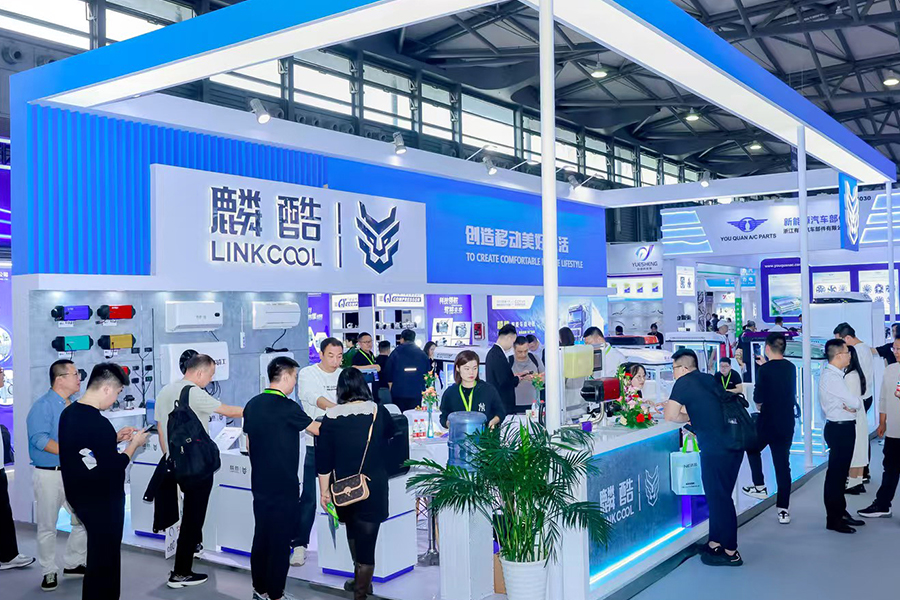
Zhejiang Linkcool Technology Co., Ltd. is China Diesel Heater For Vehicles Manufacturer and Sale Diesel Heater For Vehicles Factory. It focuses on the research, development, production and sales of automotive new energy appliances. Its main products include parking air conditioners, parking heaters and car water dispensers. As an integrated industrial and trade enterprise, we are committed to providing customers with high-quality, high-performance automotive appliances and outdoor camping appliances. We have more than 800 after-sales service outlets across the country.
Zhejiang Linkcool Technology Co., Ltd. covers an area of 20,000 square meters, providing employees with a spacious working environment. It currently has more than 150 employees and a professional R&D team and production team. We actively conduct technical exchanges and cooperation with industry experts and partners to jointly promote technological progress in the industry.
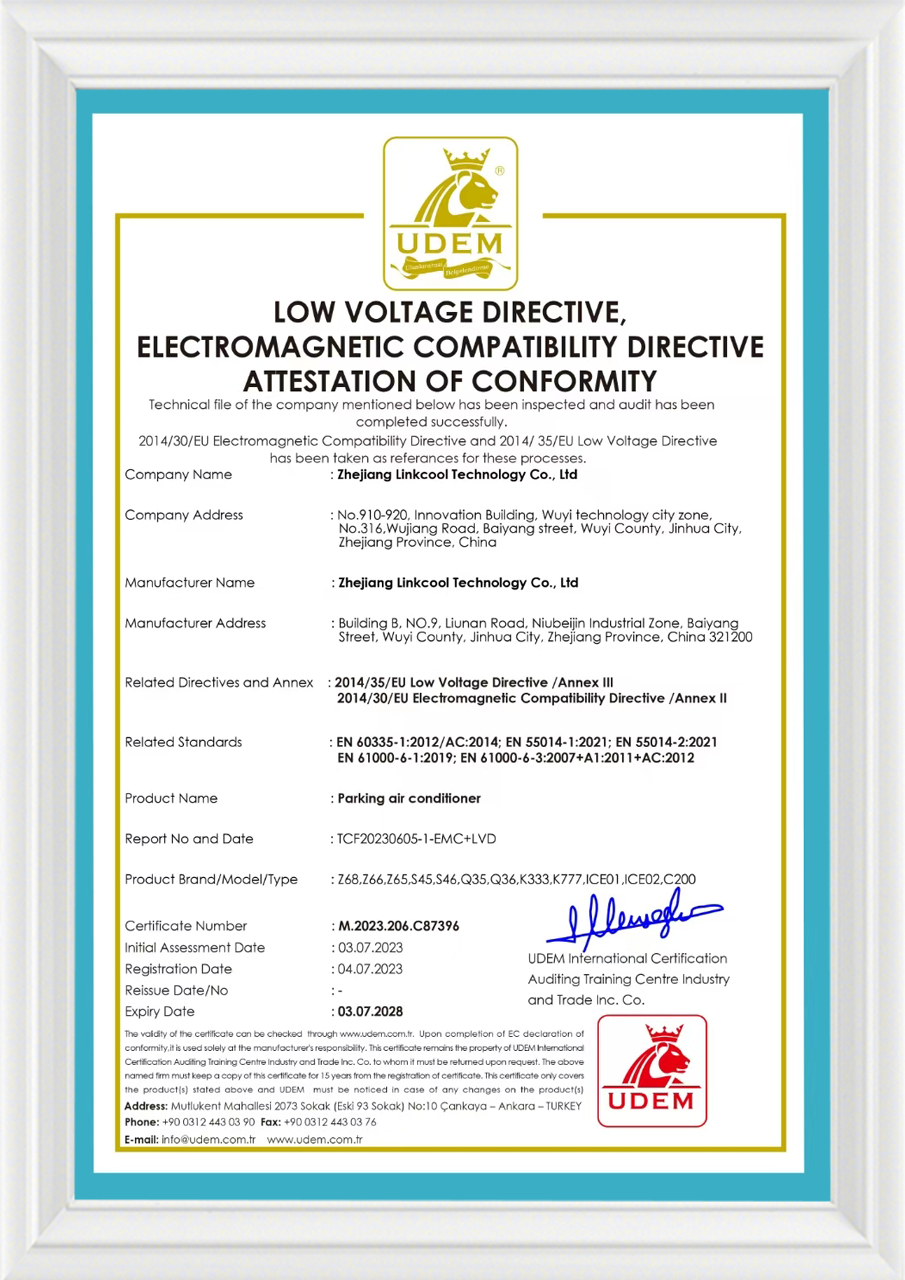
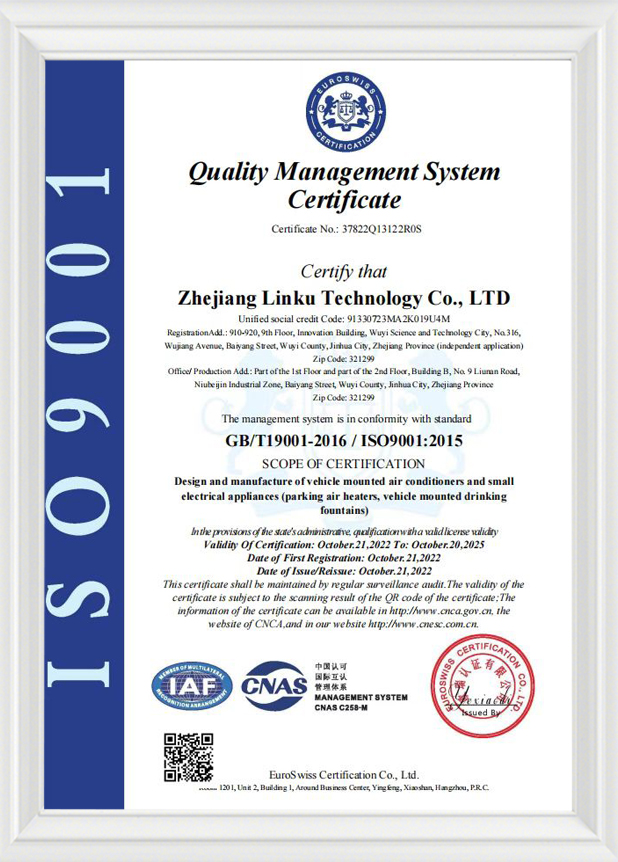

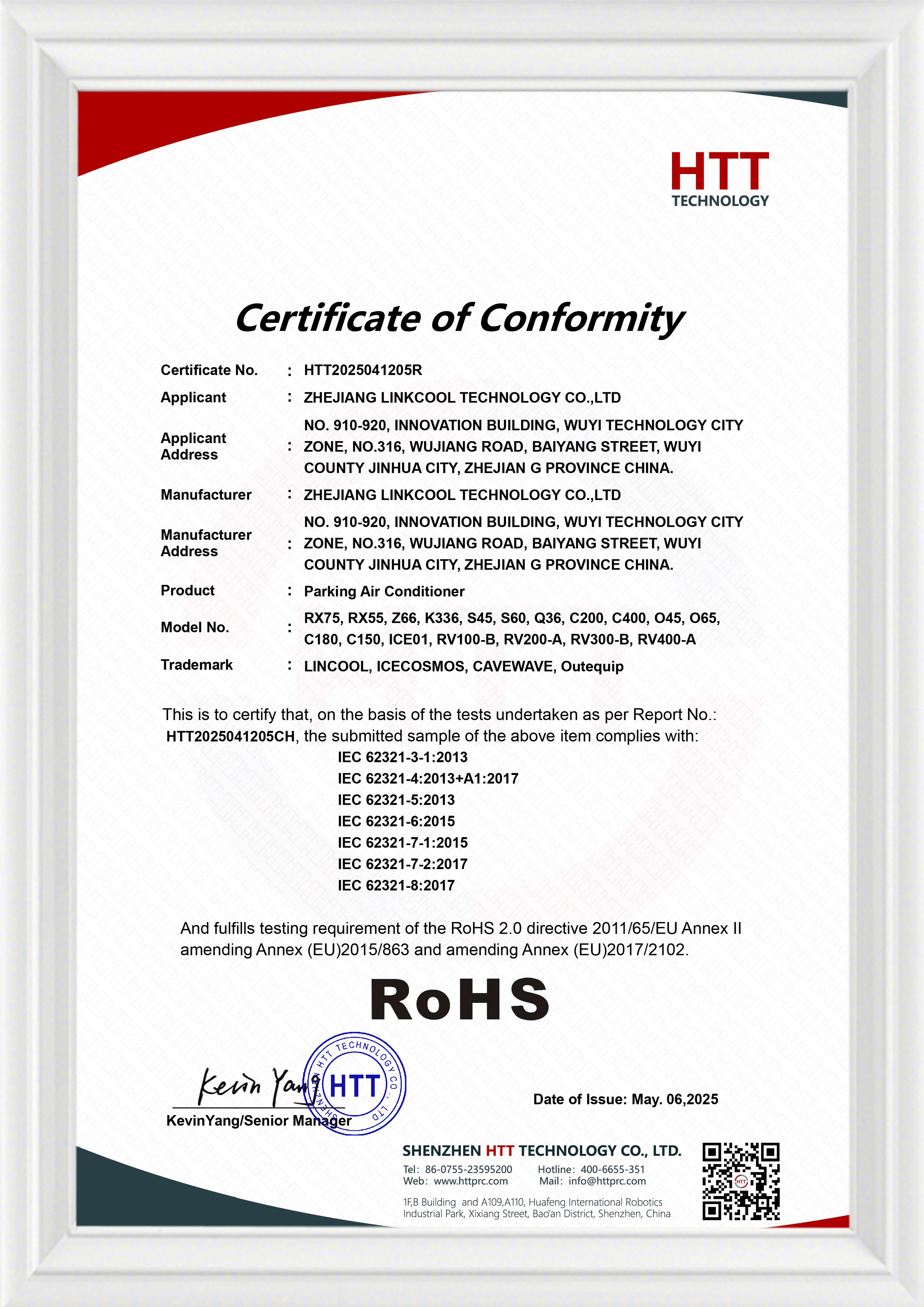
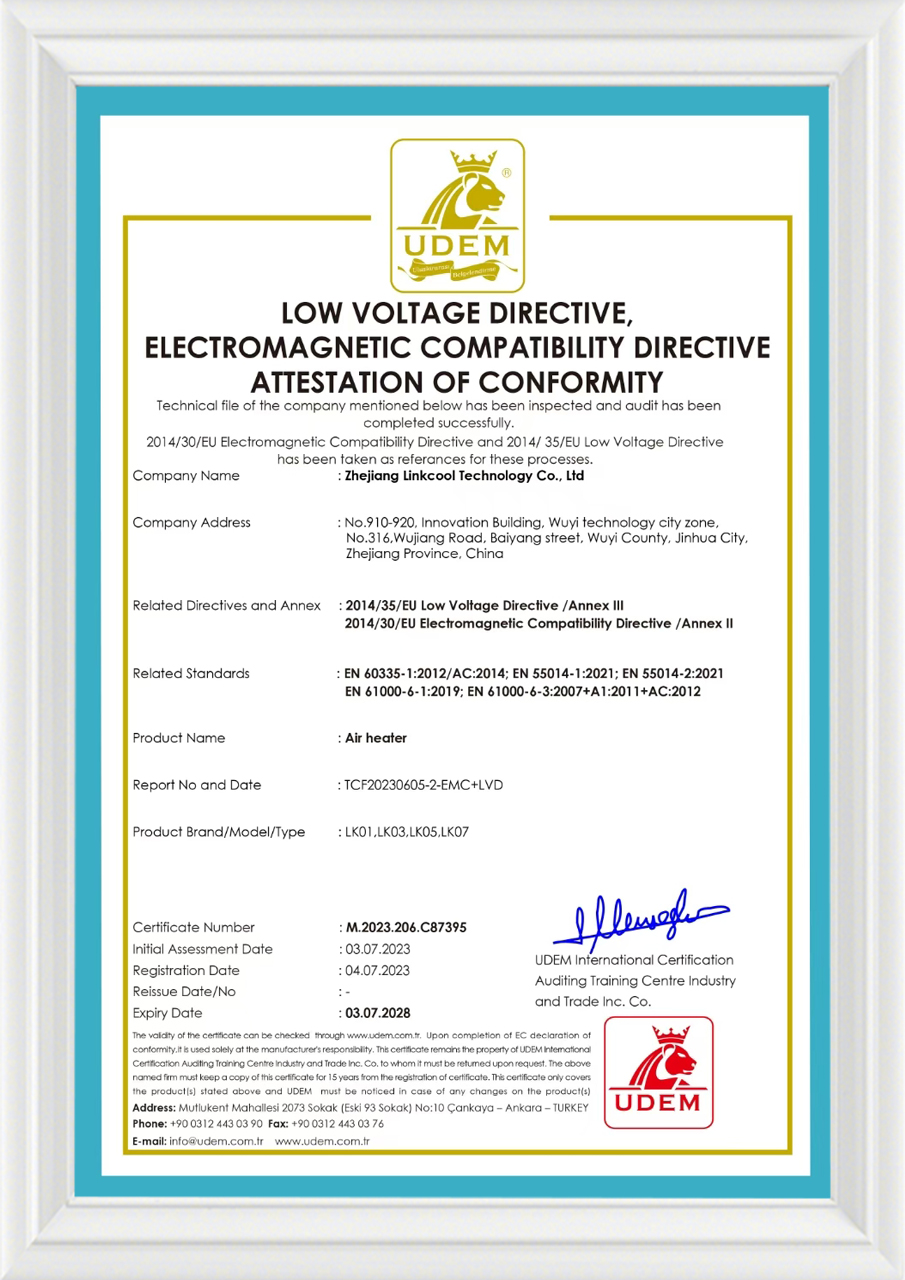
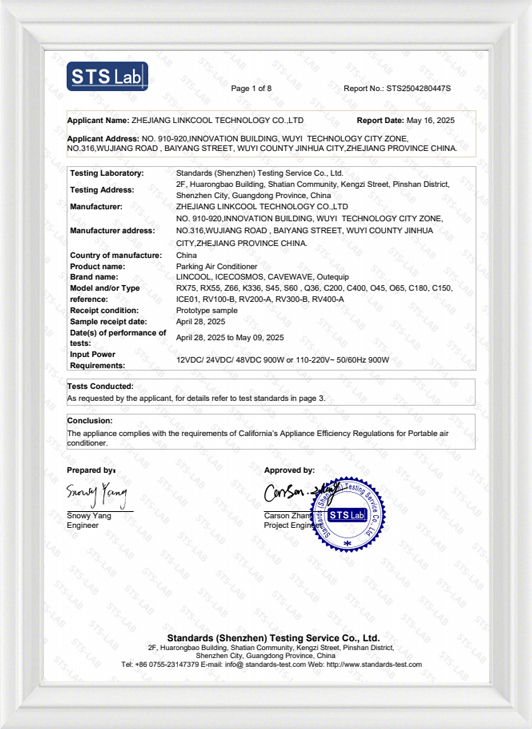
RV air conditioners have several notable shortcomings. One major limitation is their high power consumption. RV AC units typically...
View MoreIn recent years, 12V air conditioners have become increasingly popular for a variety of applications, from cooling vehicles and RV...
View MoreEnergy efficiency is a major concern, especially for vans used in remote areas or for long-distance travel. Van air conditioners c...
View MoreHow Does a Car Refrigerator Work? Car refrigerators operate based on the same principles as traditional home refrigerators but are...
View MoreStaying warm inside a vehicle during cold seasons is more than a comfort—it's a necessity for safety, sleep, and productivity, especially in RVs, trucks, and off-grid setups. Diesel air heaters have become a trusted solution for this need, offering consistent heat without the need to run the engine. But how exactly do they work, what are their environmental implications, and how do different models compare? Let's explore the essentials.
A diesel air heater is a compact heating system designed to warm the interior of a vehicle or small space independently of the engine. It operates by drawing in air from the cabin or outside, heating it through combustion of diesel fuel, and then blowing the warm air back into the vehicle. These heaters typically run on the same diesel that powers the vehicle, eliminating the need for separate fuel storage in cases.
The core components of a diesel heater include a combustion chamber, heat exchanger, intake and exhaust systems, and a fan. The combustion process happens in a sealed chamber, so no exhaust gases enter the living space. This ensures safe and clean heating.
Diesel heaters are especially essential for overnight parking, cold-weather camping, long-haul trucking, and even boats or off-grid cabins. They provide steady heat without idling the engine, which conserves fuel and reduces wear. Many models also feature programmable thermostats, timers, and remote control for convenience.
Efficiency and environmental impact are key concerns for many vehicle owners considering diesel air heaters. Fortunately, modern designs are both fuel-efficient and relatively low-emission compared to traditional idling practices.
In terms of fuel efficiency, diesel air heaters consume between 0.1 to 0.5 liters of diesel per hour, depending on the model and heat setting. This is significantly less than what an idling engine would use to keep the cabin warm. The result is not only fuel savings but also reduced engine wear and lower maintenance costs over time.
From an environmental perspective, diesel heaters produce far fewer emissions than leaving a vehicle idling for warmth. While they do emit carbon dioxide and other combustion byproducts, the amounts are minimal due to the small fuel quantity used and the clean-burning design of modern units. Many newer models meet European and North American emissions standards and are equipped with efficient combustion systems and sealed exhaust pathways that minimize exposure to harmful gases.
Additionally, because these heaters operate independently of the engine, they contribute to a lower overall carbon footprint for travelers, truck drivers, and outdoor professionals. For users who rely on solar or battery power to run the fan and controls, the environmental impact can be further reduced.
There are a wide range of diesel air parking heaters available today, and while they share a similar basic function, the differences in design, power output, features, and price can be significant. Here's a breakdown of key factors to consider when comparing models:
1. Heat Output
The common options are 2kW, 5kW, and 8kW units. Smaller Diesel Air Parking Heaters models are ideal for vans, cars, or compact RVs, while larger heaters suit trucks, large campers, and boats. Choosing the right output depends on your space size and insulation quality.
2. Brand vs. Generic
Well-known brands offer premium units with reliable performance, quieter operation, and comprehensive support—but at a higher price. Budget-friendly Chinese models have gained popularity for their affordability and surprising reliability, although they may vary in quality and customer service.
3. Control Features
Many newer Diesel Air Parking Heaters models come with LCD displays, remote controls, and timers, allowing users to preheat the vehicle or adjust settings without getting out of bed. Some even offer Bluetooth app control for added convenience.
4. Installation and Maintenance
High-end heaters often include detailed manuals and are supported by certified installers. Budget models may require more DIY skills but are relatively straightforward to install with the proper tools.